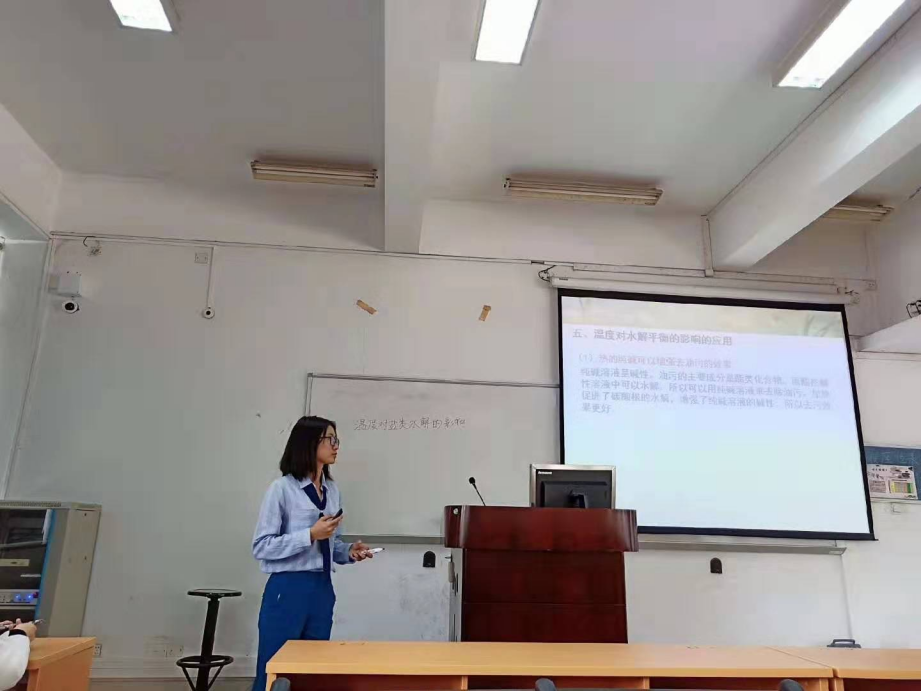
Likes
Editor's Note: Under the theme of “Challenge and Change”, the second English writing contest of SCNU has came to a close with over 280 articles from 28 schools and colleges. We recognize all prize winners for their excellent performance. Awarded winners have been announced (see results), and all winning articles will be published in this column.
-------
By Su Jiao
It's a no special day: I opened my laptop to take an on-line writing class. Assigned with a writing task, I started browsing the Internet by using a search engine. Then I looked up Xinhua Net to read up on some financial news. My eye fell on an article, titled "A scarcity of financial live streaming talents". By taking a closer look at this monotonous scene, we can perceive significant changes in education, technology and the job market. In a new era of evolution, we as individuals should leverage the challenges and opportunities generated by a succession of revolutions.
The education mode has witnessed a trend of diversification. In the midst of raging pandemic, students are cooped up at home and compelled to have on-line courses. The education landscape is no longer confined to a situation where there is a teacher standing in front of a swarm of students.
There is no doubt that the shift has its perks. The on-line classes transcend the geographic limitation and boost the sharing of educational resources, hence the promotion of educational equality. Take MOOCs, an on-line learning platform, for example, it boasts a gargantuan number of free courses, liberating learners from hitting the classroom in person. However, on-line classes also pose challenges to us. Such as for those who live in impoverished regions, lacking access to internet, they cannot study on line, which highlights the educational disparity in a sense. On top of that, those who lack self-discipline will find it hard to stick to learning in the face of distractions, such as video games and intriguing feeds.
Striking headway has been made in technology, which is usually likened to a double-edge sword. The epitome of emerging technology is AI. It facilitates the convenience and efficiency in many realms. For instance, AI can act as a potent tool for translators, enabling an expert to review up to 2 million words with the assistance of AI, a dramatic increase from 20 thousand words. But this innovation also delivers a new challenge. Debates over whether AI will replace humans to work has been raging for quite a long time.
As far as we can see, it has undertaken a host of positions, like customer service, servants and low-skilled workers, to name just a few. In a nutshell, whatever jobs people engage in, they inevitably fret over their job security in the cases where we have been forging ahead with technology at such an unprecedented speed. This concern brings us to the next point.
The job market has been greatly influenced by formidable technology. Rather than simply attribute unemployment to technology, it’s more appropriate to say there is an evolution or transformation in job markets. Brand new jobs emerge, such as app developer, social media manager and in cloud computing services, which gives us more leeway to seek out our own niche.
Furthermore, as we step into digital times, e-commerce platform-based employment is thriving and flourishing. Unlike the traditional relationship between employer and employee, traders can directly establish connections with markets via platforms in the case of new employment mode. That is to say, it endows people with more flexibility and independence when it comes to landing a job. It is reported that the number of employees at Alibaba notches up around 110,000, and jobs it generated exceed 10 million. More job opportunities amount to more positive job prospects for individuals.
However, there are still some downsides. There is an imbalance between supply and demand in some positions. As I mentioned at the very beginning, the financial live-streaming anchors run short. What’s more, the new situation raises the bar for everyone who wants to get a leg up in this stiff competition. Procuring a well-paid job entails great inputs, from the know-how to time you invest, which is undoubtedly time-consuming and demanding.
Nevertheless, we can take initiatives by implementing some strategies in the face of overwhelming changes. To begin with, we are required to conduct a lifelong learning to empower ourselves with a breadth of knowledge. Since we have been confronted with all manners of learning mode, what we need to do is to discern the most suitable and effective way to acquire knowledge, be it traditional one or trendy.
Furthermore, learning for a lifetime doesn’t mean we are to immerse ourselves in the textbooks. Instead, expose ourselves to some challenging and salutary practice as a way to enrich our social and life experience, which could be executed in a both academic and entertaining way. Also, we could participate in some internship programs or vocational trainings, and it also pays to have a trip during which we can accumulate experience that we could not learn from our textbooks. The last but not the least, we should keep pace with the times but not blindly follow suit. There are a host of skills we can hone and platforms where we can display ourselves. For instance, Phython, a computer programming language, has started to catch on in China. It goes without saying it will assist you to gain an edge over competitive prowess. However, sanity and discernment count when we make decisions. Make sure that the option we go for is in line with our own values rather than replicate others’ path without further consideration.
Adversity and hope often go hand in hand, so do opportunity and challenge. In this ever-changing world, I firmly believe that as long as we equip ourselves with wisdom, grit, persistence and poise, we can well harness chances and bravely face challenges on the paths ahead.
What to read next:










